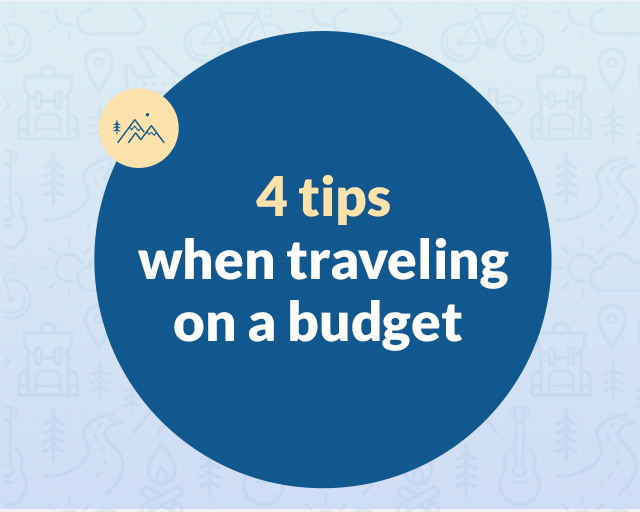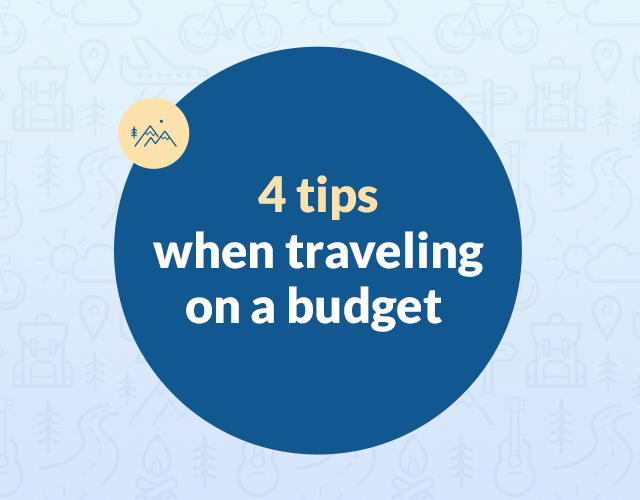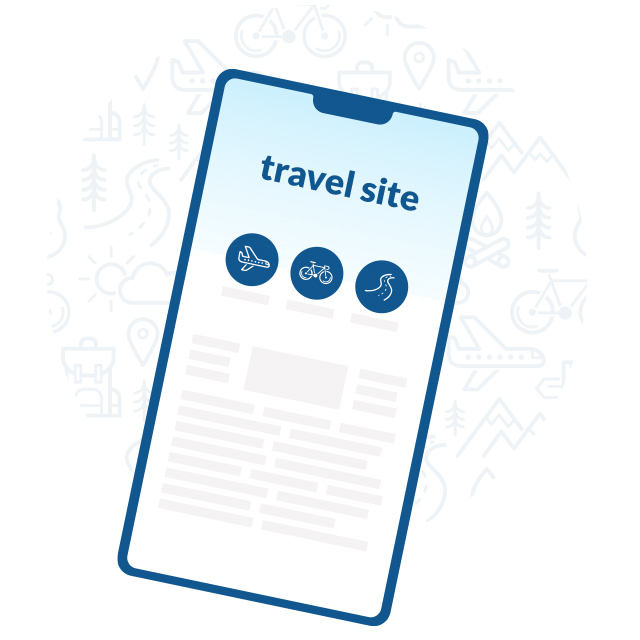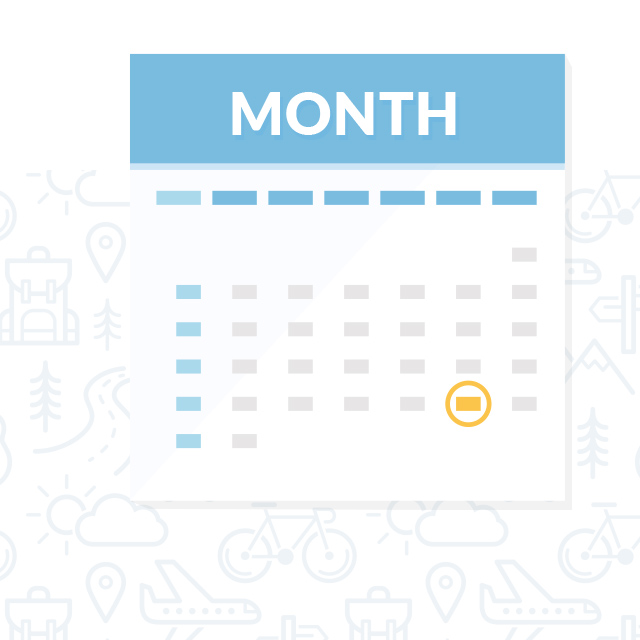

It’s a big world. So many places to go and things to see – but maybe your travel budget is tight. That’s OK! Traveling on a budget doesn’t have to make the trip any less fun. If you’re thinking about planning a vacation, read these 4 tips first to help you stay within your budget while still having a blast. Pro tip: don’t forget to check local travel restrictions before booking.
1. research cheap travel websites
This is usually the first thing people think about when planning a trip on a budget. These websites can help you narrow down the place you want to go that will fit in to your budget. Once you’ve figured that out, these websites can help you find cheap airfare and places to stay.
Take a look at alternate ways to travel, too. Maybe you can get to your destination by train, bus or car, and in the long run, that could be cheaper than a plane ticket, especially if you’ll be traveling with family. Instead of a hotel, check out websites where you can rent a home or a room, or look for hostels – those are usually the cheapest option for lodging. You could even stay for free if you choose a destination that has friends or family.
2. travel like a local
Before you go, try to get a feel for the place you’re visiting and the area you’re staying in, so you’re not completely lost. If you need transportation when you get there, research that ahead of time too. Renting a car doesn’t have to be the only option. Try ridesharing apps or take public transportation, as these are low-cost alternatives to the more expensive car rentals.
Before you go, work out a daily budget. This way, you can make the most of your money without having to worry about it when you get there. When looking for things to do, search online for local hidden gems like beaches or experiences. Avoid tourist traps and gift shops as they are usually expensive and crowded. If you want souvenirs, check out local big box stores, as they usually have a pretty good selection for less.
When it comes to meals, if possible, cook for yourself, stay at a hotel or hostel that has free or cheap breakfast or, if you feel comfortable, talk to actual locals to find restaurants that are off the beaten path. These places are usually less expensive and often have the best food.
Don’t act completely like a local, though. If you’re traveling somewhere that has famous or important landmarks, try to work those into your budget instead of missing out.
3. go in the off season
What does this mean? It means traveling when there isn’t a school break, a holiday or when it isn’t peak season for your chosen destination. For example, the off season for the beach is usually outside of Memorial Day and Labor Day, so planning a trip outside of those times can mean fewer tourists, and cheaper flights and places to stay. It can even mean cheaper food and experiences, and more money to do the things you want to do. Just make sure you check out the weather before you plan your trip – you don’t want to be visiting Florida during hurricane season.
4. book in advance
When you start planning your trip early, you can track the prices for airfare and hotels, and figure out if something is actually a good deal. Being an early bird usually means you’ll have the best and most affordable options open to you and takes out the stress around last-minute planning. You could take the extra time to save up more money, too. The main reason for this tip? Booking in advance gives you more time to be excited about your trip!
Download this helpful travel infographic here.















